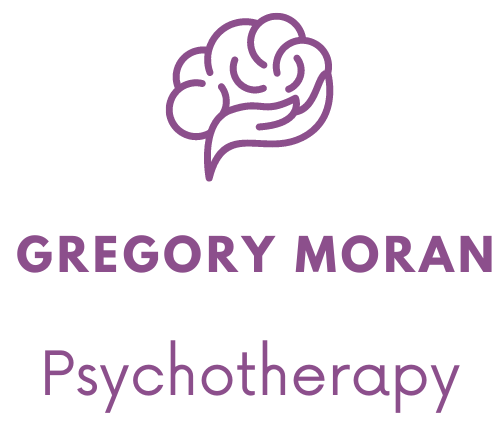Bereavement & Grief Therapy in Clare
“Embrace your grief. For there, your soul will grow.”
Carl Jung
What is it like to experience grief?
Experiencing grief is like being engulfed in a profound sense of loss and sadness. It can feel like an emotional rollercoaster with intense waves of pain, disbelief, anger, and numbness. Grief affects every aspect of life, impacting thoughts, emotions, behaviours, and physical sensations. It can also lead to a sense of emptiness, longing, or confusion as individuals navigate through the process of mourning and adapting to life without what or whom they’ve lost.
What are signs that you are grieving?
Here are some common signs that you may be experiencing grief:
1. Intense sadness: Feeling deep and persistent sadness is a hallmark of grief. You may experience waves of overwhelming emotion, especially when reminded of the loss.
2. Shock and disbelief: Initially, you may feel numb or in disbelief about the reality of the loss. It may take time for the full impact to sink in.
3. Anger or irritability: Grief can often be accompanied by feelings of anger, frustration, or irritability. You may direct these emotions towards yourself, others, or even the person you’ve lost.
4. Guilt or regret: It’s common to experience feelings of guilt or regret, especially if you believe you could have done something differently to prevent the loss or if there were unresolved issues in the relationship.
5. Physical symptoms: Grief can manifest physically, leading to symptoms such as fatigue, headaches, muscle aches, changes in appetite, or difficulty sleeping.
6. Cognitive difficulties: Grieving individuals may have trouble concentrating, making decisions, or remembering things. They may also experience intrusive thoughts or preoccupation with the loss.
7. Social withdrawal: Some people may withdraw from social activities or isolate themselves from others as they navigate their grief. They may feel disconnected or unable to relate to those who haven’t experienced a similar loss.
8. Yearning or longing: Grief often involves a profound sense of longing for the person who has passed away or for the way things used to be. You may find yourself wishing for their presence or replaying memories in your mind.
9. Changes in behaviour: Grief can lead to changes in behaviour, such as increased or decreased appetite, restlessness, or engaging in activities that provide temporary distraction from the pain.
10. Emotional numbness: At times, you may feel emotionally numb or detached from your surroundings as a way of coping with the intensity of your feelings.
It’s important to remember that grief is a highly individual experience, and not everyone will exhibit all of these signs. Additionally, the grieving process is not linear and may involve periods of intense emotion interspersed with moments of relative calm. If you’re struggling to cope with grief, contact us.
What to expect with grief therapy?
Grief therapy designed to help individuals navigate the complex emotions and challenges associated with loss. Here’s what grief therapy typically entails:
Establishing rapport
The counsellor creates a safe and supportive environment where the grieving individual feels comfortable expressing their thoughts and emotions.
Assessment
The counsellor works with the individual to understand the nature of the loss, the individual's relationship with the deceased, and the impact of the loss on various aspects of their life.
Validation and normalization
The counsellor validates the individual's feelings of grief and normalizes their experience, helping them understand that grief is a natural response to loss and that their emotions are valid.
Education
The counsellor provides information about the grieving process, including common emotional and physical responses to loss, and helps the individual understand what to expect as they navigate their grief.
Exploration of emotions
The counsellor helps the individual explore and process their emotions related to the loss, including sadness, anger, guilt, and longing. They may use various therapeutic techniques to facilitate emotional expression and healing.
Coping strategies
The counsellor teaches practical coping strategies to help the individual manage their grief, including relaxation techniques, mindfulness exercises, and strategies for dealing with intrusive thoughts or overwhelming emotions.
Problem-solving
The counsellor helps the individual identify and address practical problems or challenges related to the loss, such as managing funeral arrangements, handling financial matters, or navigating changes in relationships.
Support and validation
Throughout the counselling process, the counsellor provides ongoing support, validation, and encouragement, helping the individual feel understood and less alone in their grief.
Exploration of meaning and purpose
As the individual progresses through the grieving process, the counsellor may help them explore questions of meaning, purpose, and spirituality, helping them find a sense of meaning and purpose in their loss.
Grief therapy is often tailored to the individual’s unique needs. The goal is to provide compassionate support and guidance as the individual navigates their grief journey and works towards healing and growth.
What is the most common therapeutic approach?
The most common approach for grief therapy is Grief Counselling, which involves exploring feelings, memories, and beliefs surrounding the loss while providing practical support and coping strategies tailored to the individual’s needs.
Integrative psychotherapy is commonly used for grief therapy. Integrative psychotherapy involves combining elements from different therapeutic approaches based on the individual’s unique needs and preferences. This approach recognizes that no single therapy fits all situations, and it allows therapists to tailor the treatment to best address the complexities of grief.
In grief therapy, integrative approaches may involve combining techniques from various therapeutic modalities such as cognitive-behavioural therapy (CBT), psychodynamic therapy, mindfulness-based approaches, and existential therapy. For example:
1. CBT techniques may be used to help individuals challenge negative thoughts and develop coping skills to manage grief-related symptoms.
2. Psychodynamic approaches may help individuals explore unconscious emotions and conflicts related to their loss, providing insight into their grief process.
3. Mindfulness-based techniques may help individuals cultivate present-moment awareness and acceptance of their grief-related emotions.
5. Existential therapy can help individuals explore existential themes such as meaning, purpose, and mortality, providing a framework for understanding and accepting the reality of loss.

